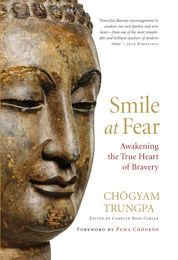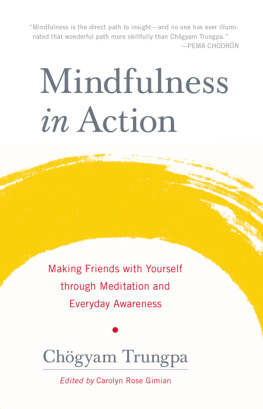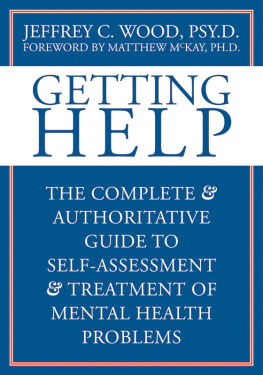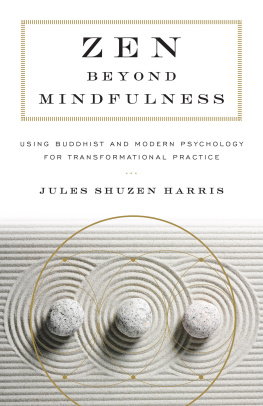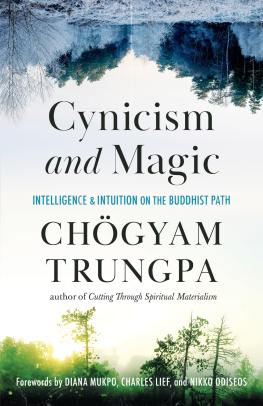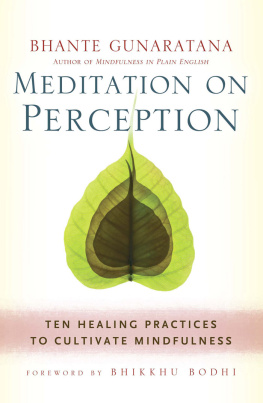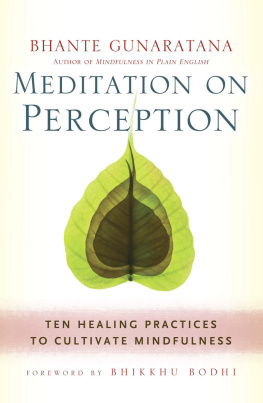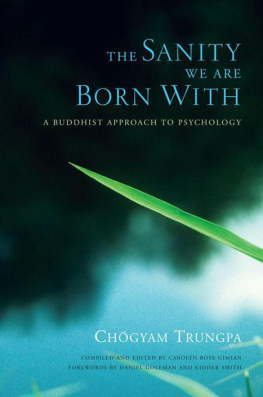Chgyam Trungpa was the first Buddhist master to present Buddhism in a psychological language that spoke directly to the Western mind. This highly recommended volume, which brings together his penetrating views on Buddhist and Western psychology, will be of great interest to psychotherapists, students of Dharma, and anyone who is concerned with the relationship between the native sun of awakened wisdom within us and the psychological clouds that obscure its light.
John Welwood, author of Towards a Psychology of Awakening
ABOUT THE BOOK
More and more mental health professionals are discovering the rich tradition of Buddhist psychology and integrating its insights into their work with clients. Buddhist tradition teaches that all of us are born with what Chgyam Trungpa terms basic sanity, or inherent goodness, health, and clear perception. Helping ourselves and others to connect with this intrinsic ground of sanity and health is the subject of this collection of teachings, which the author gave to Western psychologists, psychotherapists, and students of Buddhist meditation over a number of years.
The Sanity We Are Born With describes how anyone can strengthen their mental health, and it also addresses the specific problems and needs of people in profound psychological distress. Additionally, the author speaks to the concerns of psychotherapists and any health care professionals who work with their patients states of mind. The collection includes teachings on:
- Buddhist concepts of mind, ego, and intelligence, and how these ideas can be employed in working on oneself and with others
- meditation as a way of training the mind and cultivating mindfulness
- nurturing our intrinsic health and basic sanity
- guidance for psychotherapists and health professionals
CHGYAM TRUNGPAmeditation master, teacher, and artistwas the founder of Naropa University and is the author of numerous books on Buddhism and the path of meditation, including Shambhala: The Sacred Path of the Warrior, Cutting Through Spiritual Materialism, The Myth of Freedom, and Great Eastern Sun.
The compiler and editor of The Collected Works of Chgyam Trungpa, CAROLYN ROSE GIMIAN has been editing the works of Chgyam Trungpa for more than twenty-five years. She is the founding director of the Shambhala Archives, the archival repository for Chgyam Trungpas work in Halifax, Nova Scotia.
Sign up to receive inspirational quotes by Chgyam Trungpa and special offers from Shambhala Publications.

Or visit us online to sign up at shambhala.com/eoceanofdharma.
THE
Sanity We Are Born With
A BUDDHIST APPROACH TO PSYCHOLOGY

Chgyam Trungpa
Compiled and edited by Carolyn Rose Gimian
Forewords by Daniel Goleman and Kidder Smith

SHAMBHALA
Boston & London
2010
Shambhala Publications, Inc.
Horticultural Hall
300 Massachusetts Avenue
Boston, Massachusetts 02115
www.shambhala.com
2005 by Diana J. Mukpo
Editors Introduction 2005 by Carolyn Rose Gimian
Foreword by Daniel Goleman 2005 by Daniel Goleman
Foreword by Kidder Smith 2005 by Kidder Smith
For further copyright information, see the Sources section.
All rights reserved. No part of this book may be reproduced in any form or by any means, electronic or mechanical, including photocopying, recording, or by any information storage and retrieval system, without permission in writing from the publisher.
Library of Congress Cataloging-in-Publication Data
Trungpa, Chgyam, 1939
The sanity we are born with: a Buddhist approach to psychology / Chgyam Trungpa; compiled and edited by Carolyn Rose Gimian.
p. cm.
eISBN 978-0-8348-2127-9
ISBN 978-1-59030-090-9
1. BuddhismPsychology. I. Gimian, Carolyn Rose. II. Title.
BQ4570.P76T78 2005
294.3019dc22
2004056509
CONTENTS
FOREWORD
Daniel Goleman
T HE YEAR WAS 1975, the setting a restaurant in Cambridge, Massachusetts. Chgyam Trungpa Rinpoche had invited me out to dinner to tell me about his plans for a new educational institution he was founding, Naropa Institute. At one point in the conversation he leaned across the table toward me with a conspiratorial air, looked me straight in the eye, and said emphatically, Buddhism will come to the West as a psychology.
That proposition made immediate sense to me. I had recently received my doctorate in psychology from Harvard, and returned there as a visiting lecturer after a year of postdoctoral study in Sri Lanka and India. My topic was abhidharma, an ancient Buddhist theory of mind that has been in continual use as an applied psychology for the last fifteen hundred years or more.
Of course, I had never heard of this system in any of my academic psychology studies. The implicit assumption (culture-bound and flavored with hubris though it may be) was that the field of psychology had begun only a century before, in Europe and Americanone of my psychology professors had ever heard of abhidharma. I took Rinpoches observation to mean that Western students of psychology would soon be hearing whispers of abhidharma that might inspire them to pursue further study of Buddhism. Indeed, he sprinkled his teachings with nuggets from this rich psychological mine, offering practical hints on everything from ones state of mind while diapering the baby to transforming aggression. Trungpa Rinpoche was among the very first to offer such glimpses to a Western audience, sometimes casually interspersing these into a discussion and sometimes discoursing on them at great length.
This volume does a great favor for Western readers who want to understand the view Buddhist psychology takes of the human condition, pulling together a lifetime of insights on the subject by one of its most articulate teachers. Buddhism, like Western thought, harbors multiple schools of philosophy and psychology of mind. Several of these are represented here, though there are still more awaiting exploration by those readers who find themselves intrigued. Chgyam Trungpa offers us a rich banquet, with many inviting, intriguing, and delicious glimpses into these Buddhist perspectives on our mind and life.
FOREWORD
Kidder Smith
P ERHAPS IT S A SHOCKING THOUGHT , that we are all born sane. But the Buddhist tradition goes further still, declaring that we are actually sane right now. Whatever confusions we experience, whatever doubts or anxieties may arise, at the base of all this, in the midst of all this, our fundamental sanity is always present. We might say that this book seeks to demonstrate how such an outrageous claim can be true. But actually this book provides a means for you, the reader, to determine its truth for yourself.
That means is meditation. As Trungpa Rinpoche says, meditation is a way of clarifying the actual nature of mind. Insofar as psychology is the study of mind, meditation offers us a psychological practice that is uniquely intimate. It is not someone elses experience we are studying, it is our own. And yet, as we will see, meditation takes us into the same intimacy with other beings that we have with ourselves.
What is mind? Everything. We get a hint of that in the way our experience is continuous. Even in deepest sleep our mind is active, aware, processing. When we meditate, attending consciously to mind, it never abandons us, never runs out or expires. Not only is our consciousness abundantly wall-to-wall, it actually

